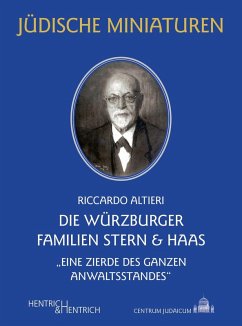
The Veit Family from Freiburg
"It's just that you remain attached to your homeland ..."
Übersetzung: Schellenbach, Margit
Versandkostenfrei!
Sofort lieferbar
8,90 €
inkl. MwSt.

PAYBACK Punkte
0 °P sammeln!
The southern part of Baden had been home to the Veit and Günzburger families for generations. Berthold Veit achieved prosperity through a sawmill, the children attended secondary schools, religion seemed to be irrelevant - until the establishment of the Nazi dictatorship in 1933. The National Socialist "racial policy" was implemented at least as rigorously in Freiburg, the outermost periphery of the German Reich, as it was in Berlin. The entire Jewish population of Baden was deported as early as 1940. Berthold Veit, his wife Hilda, née Günzburger, and their four children managed to flee in ...
The southern part of Baden had been home to the Veit and Günzburger families for generations. Berthold Veit achieved prosperity through a sawmill, the children attended secondary schools, religion seemed to be irrelevant - until the establishment of the Nazi dictatorship in 1933. The National Socialist "racial policy" was implemented at least as rigorously in Freiburg, the outermost periphery of the German Reich, as it was in Berlin. The entire Jewish population of Baden was deported as early as 1940. Berthold Veit, his wife Hilda, née Günzburger, and their four children managed to flee in time and thus survive - unlike other members of the family. Berthold Veit's idea of a friendly return of the property that had been stolen from him proved to be an illusion. He and his wife missed their homeland for the rest of their lives, but they found it impossible to return due to the injustice they had suffered. Today, their descendants live scattered across the globe.












